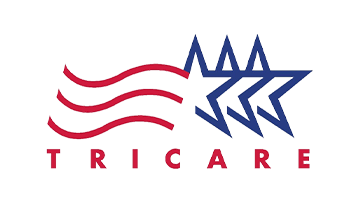Our Location
Get Directions
Understanding the warning signs for mental illness behaviors is crucial to prevent relapse. Identifying mental, emotional, and physical triggers is key. Develop coping strategies like avoiding triggering environments, managing stress, and engaging in positive activities. A reliable support network of family, friends, and professionals is vital for successful recovery. Remember, relapse isn’t failure; it’s a chance to learn and grow towards lasting recovery. With determination and a positive mindset, overcoming mental illness is achievable.
Relapse prevention is a crucial aspect of maintaining long-term recovery from mental illness. It involves identifying potential triggers for relapse and developing coping strategies to manage these triggers effectively. These may include avoiding triggering environments, managing stress through healthy habits and activities, and building a strong support network of loved ones and professionals. Education about the warning signs for mental illness behaviors is also essential in relapse prevention. It allows individuals to recognize when they may be at risk of relapsing and take steps to prevent it. Relapse is not a failure, but rather an opportunity for growth and learning in the journey towards lasting recovery.
Establishing a robust support system is key for reaching and sustaining recovery objectives. Loved ones offer motivation, empathy, and direction. Engaging with a recovery group or connecting with peers in recovery fosters involvement and connection.
To prevent mental illness behaviors, it’s vital to cultivate and apply healthy coping strategies. Engaging in physical activity, journaling, or meditation aids in stress management and lowers relapse risks. Planning for triggers empowers individuals to navigate potential hurdles in recovery safely and efficiently.
Relapse prevention is not a one-time event but rather an ongoing process. It requires constant effort and awareness to maintain long-term sobriety. A slip in sobriety does not always mean a full relapse, and individuals can use the techniques they have learned to bounce back from it.
However, if a full relapse does occur, it is essential to make adjustments and seek additional support to continue on the path of recovery. With proper tools, support, and strategies, individuals can stay on the recovery path and overcome any challenges that may arise. It is crucial to have a relapse prevention plan in place and practice mindfulness as a way to cope with potential triggers for mental illness behaviors.
The community at Spero Recovery is truly unique and a vital aspect of our program. We believe that recovery is not achieved in isolation, but through connection and support from others who are on a similar journey. Our community is made up of individuals from all walks of life who come together to offer each other compassion, understanding, and encouragement. The bonds formed within our community often last long after treatment, providing ongoing support and inspiration for those in recovery.
Your Mental Health is Important
Depression disorder is a common mental health condition characterized by persistent feelings of sadness, hopelessness, and loss of interest in daily activities. It can affect people of all ages and backgrounds and can be caused by various factors, such as genetics, life events, or chemical imbalances in the brain.
Learn moreAnxiety disorder is a common mental health condition that involves excessive worry, fear, and nervousness. It can manifest in physical symptoms such as restlessness, muscle tension, and difficulty concentrating. Those struggling with anxiety disorders can be triggered by various stressors or may occur without any apparent reason.
learn moreBipolar disorder is marked by significant fluctuations in mood, energy levels, and activity. Individuals with bipolar disorder may experience extreme episodes of mania, characterized by elevated moods, impulsive behavior, and increased energy levels. These periods can quickly shift into depressive episodes.
learn morePTSD (Post-Traumatic Stress Disorder) can develop after experiencing or witnessing a traumatic event. Symptoms of PTSD can include flashbacks, nightmares, severe anxiety, and avoidance of activities or places that trigger memories of the trauma. These symptoms can greatly impact an individual's daily life.
learn moreADHD (Attention-Deficit/Hyperactivity Disorder) is a neurodevelopmental disorder that can affect individuals of all ages. It is characterized by symptoms such as difficulty focusing, hyperactivity, and impulsivity. Symptoms can impact an individual's daily life, including work, relationships, and overall well-being.
learn moreBorderline personality disorder (BPD) is a complex mental health condition that can have a profound impact on an individual's life. People with Borderline personality disorder often experience intense emotions, struggle with managing their impulses and behavior, and have difficulty forming stable relationships.
learn moreSpero Recovery is pleased to work with many insurance providers to give everyone a chance to recovery.





